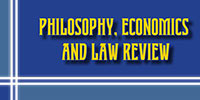Олена ГАЛУШКО, Камерон БАТМАНГЛІЧ
ГАЛУШКО О., БАТМАНГЛІЧ К. (2023), ЕТИЧНІ ТА ПРАКТИЧНІ АСПЕКТИ ВИКОРИСТАННЯ ШТУЧНОГО ІНТЕЛЕКТУ В НАВЧАЛЬНОМУ ПРОЦЕСІ.
PHILOSOPHY, ECONOMICS AND LAW REVIEW. Volume 3, no. 2, 47-52
DOI: 10.31733/2786-491X-2023-2-47-52
Анотація. Філософські та етичні проблеми використання штучного інтелекту включають багато аспектів, починаючи від конфіденційності та безпеки даних і закінчуючи питаннями відповідальності за дії ШІ. Розвиток ШІ змінює природу знань і освітнього процесу, створюючи нові можливості та виклики.
Використання ШІ в навчальному процесі ставить не тільки питання технічної організації навчального процесу та оцінки отриманих за допомогою ШІ результатів, а й більш глобальні питання про роль викладача та студента, про соціальні та етичні наслідки переходу до нової освітньої парадигми. Штучний інтелект революціонізує індустрію освіти різними способами, включаючи віртуальних викладачів, персоналізоване навчання, автоматичне оцінювання, інтелектуальний контент, інтелектуальні системи навчання, прогнозну аналітику, системи підтримки студентів тощо. Однак етичні міркування впровадження штучного інтелекту у вищій освіті мають бути уважно перевірені, щоб переконатися, що ШІ використовується відповідально та етично в освітньому секторі.
У статті розглядається виникнення та розвиток ШІ, його розуміння з технічної та філософської точок зору. Обговорюються етичні питання використання ШІ та його роль у людському суспільстві. Проаналізовано етичні та практичні аспекти використання ШІ в навчальному процесі та актуальні проблеми впровадження ШІ в навчальний процес у ВНЗ.
Ключові слова: штучний інтелект, освіта, етика, педагогіка, процес навчання, засоби навчання.
References
- McCarthy, J. (2007). What is artificial intelligence? URL : https://web.archive.org/web/ 20151118212402/http://www-formal.stanford.edu/jmc/whatisai/whatisai.html.
- 10 Ways AI in Education is Transforming the Industry. (September 21, 2023). URL : https://appinventiv.com/blog/10-ways-artificial-intelligence-transforming-the education-industry/amp/
- Abdoullaev, Azamat. (2023). AI blog on LinkedIn. URL : https://www.linkedin.com/in/azamat abdoullaev-335a0881/.
- Adams, C., Pente, P., Lemermeyer, G. & Rockwell, G. (2023). Ethical principles for artificial intelligence in K-12 education. Computers and Education: Artificial Intelligence, vol. 4, p. 100131. Doi : https://doi.org/10.1016/ j.caeai.2023.100131. URL : https://www.sciencedirect.com/science/article/pii/ S2666920X23000103.
- Artificial Intelligence in Teaching & Learning. URL : https://camosun.libguides.com/ai/ ethicalconsiderations#:~:text=Ethical%20Considerations%20of%20Gen%2DAI%20in %20Higher%20Education&text=These%20range%20from%20academic%20integrity,e nvironmental%20damage%2C%20and%20exploitative%20labour.
- Galushko, I., Galushko, E. &, Veselova, S. (2010). Ynnovatsyonnyy podkhod k reshenyyu dydaktycheskykh zadach vyssheho obrazovanyya [Innovative approach to solving didactic tasks of higher education]. Theory and teaching methods of fundamental disciplines in higher education: Collection of scientific works. Issue VI. Kryvyi Rih: Publishing Department of the NMetAU, pp. 51-56. [in russ.].
- Galushko, O., Veselova, S. & Galushko, I. (2011). Pidvyshchennya kreatyvnoho potentsialu studentiv za dopomohoyu audytornoyi navchal’no-doslidnyts’koyi roboty [Increasing the creative potential of students with the help of classroom educational and research work]. Ukraine’s development strategy in the global environment: Collection of scientific papers, p. 170. URL: https://pgasa.dp.ua/wp-content/uploads/2017/10/1-Galushko.pdf. [in ukr.].
- Galushko, O., Kovalenko-Marchenkova, Ye. & Chistyakov, V. (2022). Didactic aspects of distance learning in the conditions of pandemic and martial law.
- Jobin, A., Ienca, M. & Vayena, E. (2019). The global landscape of AI ethics guidelines. Nature Machine Intelligence, 1, pp. 389–399. Doi : https://doi.org/10.1038/s42256-019-0088-2
- Müller, Vincent C. (2021). Ethics of Artificial Intelligence and Robotics. The Stanford Encyclopedia of Philosophy. Metaphysics Research Lab, Stanford University. URL : https://plato.stanford.edu/archives/sum2021/entries/ethics-ai/.
- Nguyen, Andy, Ngo, Ha Ngan, Hong, Yvonne, Dang, Belle, Nguyen, Bich-Phuong Thi. (2023). Ethical principles for artificial intelligence in education. Education and Information Technologies, 28, pp. 4221–4241. Doi : https://doi.org/10.1007/s10639-022-11316-w. URL : https://www.researchgate.net/publication/364325080_Ethical_principles_for_ artificial_intelligence_in_education.
- Puthiyedath, Anjali Rajan. (2023). A Framework for AI Co-Creation in Pedagogy. URL : https://www.linkedin.com/pulse/framework-ai-co-creation-pedagogy-dr-anjali-rajan puthiyedath.
- Reiss, M. (2021). The use of AI in education: Practicalities and ethical considerations. London Review of Education, 19 (1), 5, pp. 1–14. Doi : https://doi.org/10.14324/LRE.19.1.05. URL : https://www.researchgate.net/publication/349015045_The_use_of_AI_in_ education_Practicalities_and_ethical_considerations#fullTextFileContent.
- Sheikh, H., Prins, C. & Schrijvers, E. (2023). Artificial Intelligence: Definition and Background. Mission AI. Research for Policy. Springer, Cham. Doi : https://doi.org/10.1007/978-3- 031-21448-6_2. URL : https://link.springer.com/chapter/10.1007/978-3-031-21448-6_2.
- Zhang, K. & Aslan, A. (2021). AI technologies for education: Recent research & future directions. Computers and Education: Artificial Intelligence, vol. 2, p. 100025. Doi : https://doi.org/10.1016/j.caeai.2021.100025.
